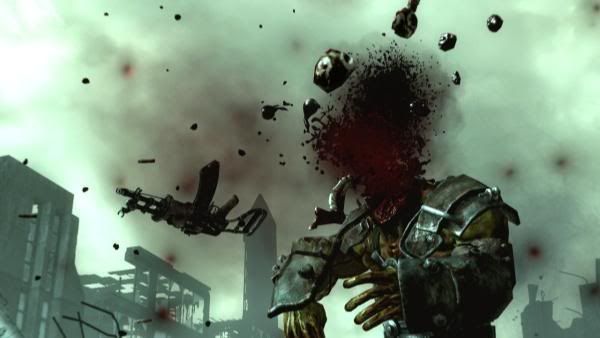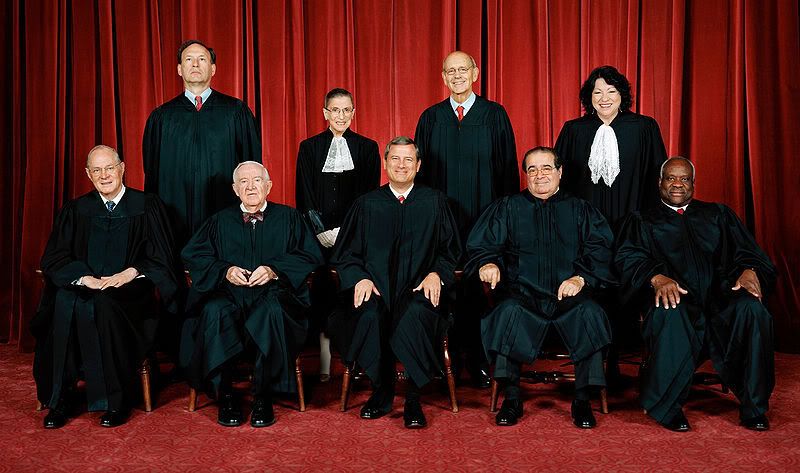
I sat down to watch The Walking Dead on AMC last night with caution, because I read the comic. Robert Kirkman's Image Comics series The Walking Dead is pure drama: As a work of character exploration, I'll put it right up there against any "recognized," serious fiction. Sunday night's premiere displayed some benchmark moments in the cinematic depiction of the zombie apocalypse that suggest we're on to what may become the height of the classic zombie's filmic depiction.
Take, for example, the oft-repeated terror of a loved one rising from the dead. It's always hinted at or spoken about in the best zombie fiction: the task of having to shoot your mother or father, brother or sister, wife or child. But never has it been depicted with such pure dread and pathos as last night.
Dwayne's inability to control his grief in the face of seeing his reanimated mother outside their house — even with the threat of calling all those zombies straight to himself by crying — and Lennie James's depiction of Morgan Jones was beyond reproach. While I didn't understand his inability to put down the reanimated corpse of his wife, I felt it.
Likewise, writer and director Frank Darabont actually turned the zombie known as "Bicycle Girl" in the behind-the-scenes videos into a sympathetic character when Rick returns to put her down. She's only half a zombie — entrails drag behind her as she makes her way across the park — but as Rick squats over her dessicated, rotting flesh, he feels genuine compassion for her, and so did I.
With this in mind, I thought of the case now before the Supreme Court, Gov. Arnold Schwarzenegger v. Entertainment Merchants Association. It is not hyperbole to suggest that this is about where we draw the line with the First Amendment, what society's perception of our hobby will be, and therefore, the artistic legitimacy of our form.

Senator Leland Yee would like us to believe that the ESRB is soft on game ratings — that parents have no ability to discern what is good for their children or use the rating system already in place such that government must impose criminal penalties upon the "porn merchants" who wish to sell M-rated entertainment software to innocent minds. No — even as someone whose journalistic integrity means something, I cannot take Yee's stance seriously because it's ridiculous.
What's really at stake here is our ability to use the colors of violence and gore in our art forms — not just video games but also television and film. Make no mistake that if SCOTUS finds in favor of California that it will not be long until the moralists attempt to find some way to turn the precedent on these other forms of entertainment. And then we may not have television shows with such brilliant dramatic potential as The Walking Dead.
The Walking Dead pulled no punches Sunday night. Bodies' entrails were bloody and bloated. Head shots were graphic and juicy. Ricks's poor horse…well, I get upset about the horse. If you saw the show last night, you know what I mean. But it was gore used responsibly and to dramatic effect. Any attempt to clean up or obfuscate the disgusting reality of a zombie apocalypse would ultimately have derailed the show's ability to tap into the emotions of the situation presented to our characters.
Fans of the comic know that the zombies aren't the stars, and the thrills don't come from blood and guts. They are all just threats: the unsettling reality that all the people we have come to love in the pages of Kirkman's work — and hopefully now in the frames of Darabont's cinema — are always in horrific danger. Always.

This is a lesson that everyone who creates video games needs to learn well: When blood and gore become the meat of a game rather than a selection of spices, that's when idiocy like Senator Yee's legislation arises. Rather than adjudicating the appropriateness of violence in the medium through the guise of sales to minors in the Supreme Court, we in the industry should decide the critical value of violence from the perspectives of aesthetics and design principles.
I love that I can blow enemies into chunks of red paste and gore in Fallout 3 and New Vegas, but maybe I could have done without a perk specifically to make it happen more often to potentially gratuitous levels. I think that having some blood spotting the edges of the screen in Medal of Honor as a signifier of health status works, but the "orange Kool-Aid" blood smear of Modern Warfare 2 was over the top and ridiculous. I love seeing how many stars I can get in Grand Theft Auto 4 and then tear Liberty City to pieces, but doesn't it strike anyone else as odd that we really never pay any meaningful penalty for doing so?
I'm not suggesting that developers shouldn't have done any of these things, but rather that we need to actually ask the question more often. Kirkman could have made a slaughterhouse comic series that — if successful — AMC might have turned into an Eli Roth murder-porn series. Instead, Kirkman chose to write a horror comic with the required, attendant gore only as a backdrop to the character arcing, which gave Frank Darabont the material to adapt it into a dramatic television series that could become a true highpoint of zombie cinema.

I'd like to think that the logic of SCOTUS ruling that it's unconstitutional to make possession of "crush" videos a punishable crime will somehow hold to the final verdict of Gov. Arnold Schwarzenegger v. Entertainment Merchants Association and that Senator Yee will be left to find some other hot-button issue to push in order to raise campaign funds.
But even if that's the case, this is not a question that should be shoved under the bed until we're forced to revisit it again. It's only by our communal willingness to grow up and call out developers or publishers who depend on the banal if and when it's produced that we can ensure our medium grows in the deepest and most meaningful directions we can coax it. That will only make it more difficult, if not impossible, for the Senator Yees of the world to assail our form until one day the proposition will be met with the scorn we probably all agree it deserves.
Dennis Scimeca is a freelance writer from Boston, MA. He has written for The Escapist, is currently penning features for Gamasutra and @Gamer magazine, and maintains a blog at punchingsnakes.com.
VentureBeat's mission is to be a digital town square for technical decision-makers to gain knowledge about transformative enterprise technology and transact. Learn More
